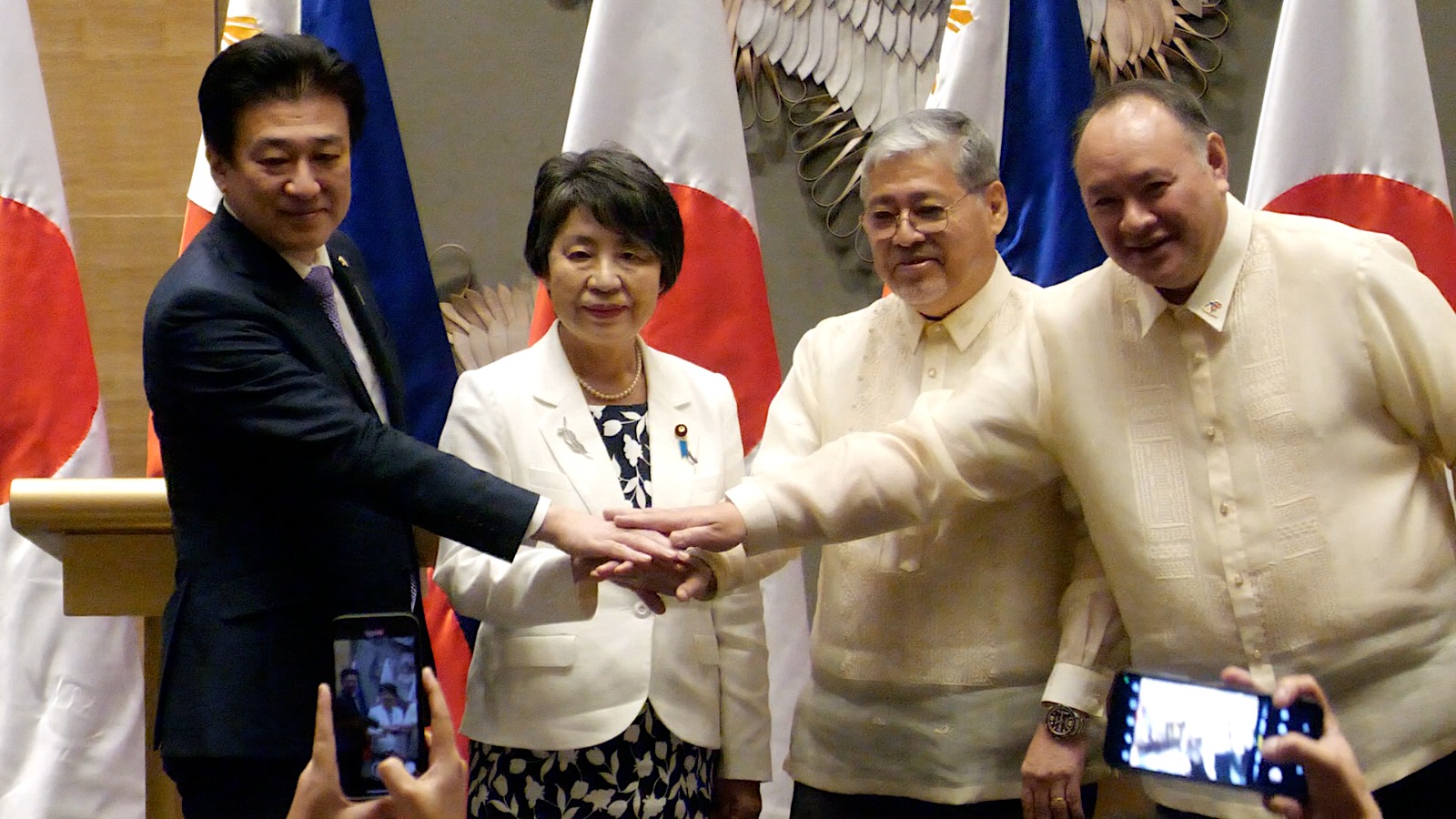RAA: Visiting troops who commit crime subject to host nation’s law

(From left to right) Japanese Defense Minister Minoru Kihara, Japanese Foreign Minister Yoko Kamikawa, Philippines Secretary of Foreign Affairs Enrique A. Manalo, and Philippines Secretary of National Defense Gilberto C. Teodoro join hands after a press conference during the 2nd Philippines-Japan Foreign and Defense Ministerial Meeting (2+2) at Shangri-La The Fort in Taguig City on Monday, July 8, 2024. —Ryan Leagogo/INQUIRER.net
MANILA, Philippines — If Japanese soldiers or civilians visiting Manila under the newly signed Reciprocal Access Agreement (RAA) commit a crime on Philippine soil, they shall be prosecuted and tried in Philippine courts—and vice versa.
Offenses committed by the visiting party will be punishable by the law of the receiving state, according to the RAA signed by Defense Secretary Gilberto Teodoro Jr. and Japanese Foreign Minister Yoko Kamikawa in Malacañang on Monday.
READ: PH, Japan ink defense pact amid China aggression
The RAA, similar to the Philippines’ visiting forces agreements with the United States and Australia, allows the former wartime enemies to deploy troops and equipment on each other’s territory.
But the language of the agreement leaves little room for ambiguity in how potential crimes by the visitors are to be handled.
Article continues after this advertisementBased on the full text of the defense pact released Monday night, members of the visiting force and the civilian component “shall remain at all times” under the command and control of the sending state in accordance with its laws and regulations.
Article continues after this advertisementREAD: Senators laud RAA; vow to scrutinize treaty before ratification
Security offenses
But under Article XXI on “Command and Control and Criminal and Disciplinary Jurisdiction,” authorities of the receiving state shall exercise criminal jurisdiction over the members of the visiting force, including their civilian component.
There is, however, an exception with respect to offenses “relating to the security of the sending state, punishable by the law of the sending state but not by the law of the receiving state.”
In such cases, authorities of the sending state shall have the right to exercise exclusive jurisdiction over the members of the visiting force and the civilian component.
Security offenses include treason against that party; sabotage, espionage or violation of any law relating to official secrets of that party, or secrets relating to the national defense of that party.
In cases where the right to exercise jurisdiction is concurrent, the authorities of the sending state shall have the primary right to exercise jurisdiction over the members of the visiting force and the civilian component in relation to “offenses solely against the property or security of the sending state, or offenses solely against the person or property of another member of the visiting force or the civilian component,” or “offenses arising out of any act or omission done in the performance of official duties.”
Prompt, speedy trial
“If the party having the primary right to exercise jurisdiction decides not to exercise jurisdiction, it shall notify the authorities of the other party as soon as practicable,” it said.
Under the RAA, if a member of the visiting force or the civilian component is prosecuted under the jurisdiction of the receiving state, the person shall be entitled to a prompt and speedy trial.
They shall also have the right to be informed in advance of the trial of the specific charge or charges made against the person in order to have reasonable time to prepare a defense, to have legal representation of his or her own choice for his or her defense or to have free or assisted legal representation under the conditions prevailing in the receiving state, to bail subject to the laws and regulations of the receiving state, and not to be compelled to testify against himself or herself among others.
In the past, the Philippines had grappled with serious crimes committed by American soldiers who were in the country under the 1999 Visiting Forces Agreement between Manila and Washington.
In 2014, transgender woman Jennifer Laude was killed in a motel in Olongapo City in a hate crime by US Marine Lance Cpl. Joseph Scott Pemberton. He was granted absolute pardon in 2020 by then President Rodrigo Duterte.
In 2005, a rape case in Subic, Zambales, also attracted international attention when a Filipino woman accused US Marine Lance Cpl. Daniel Smith of raping her. He was acquitted by the Court of Appeals in 2009.